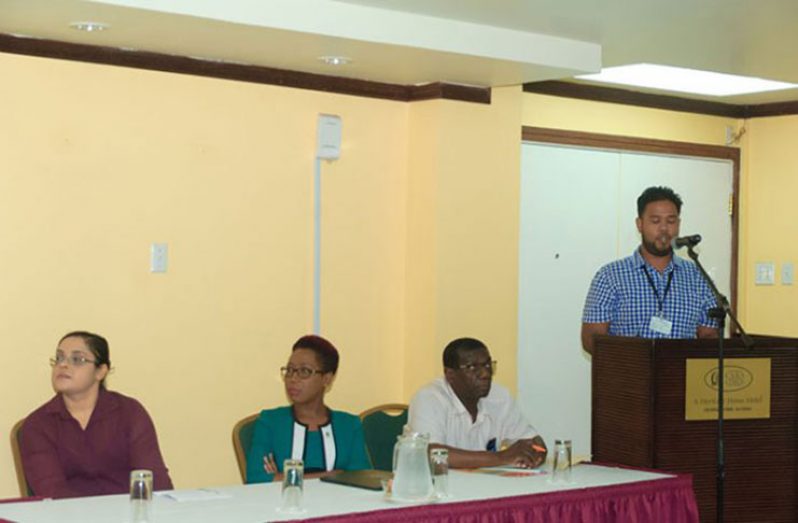–to mitigate adverse affects of climate change
FARMERS are being implored to take a more “climate-smart” approach to doing business, if they want to beat the adverse effects of climate change.
Although the notion of “going green” is reportedly the best solution to mitigating the effects of the global change in climatic conditions, experts say once the right methods of farming are not employed, more greenhouse gases can be emitted.
Journalists on Saturday learnt of the growing demand for the climate-smart agriculture approach at a media workshop organised by the Office for Climate Change and the International Institute of Sustainable Development (IISB).
Executive Director of Global Economic Cooperation, Trade and Investment within the Ministry of Foreign Affairs, Mr Rawle Lucas, made reference during his presentation to the harmful effects of chemical fertilisers to both land and air because of the gases they emit.“Agriculture is contributing to 24 per cent of the greenhouse gas emissions around the world,” Lucas said.
“We are not doing anything different from those other countries, so it is clearly an issue for us to focus on,” he added.
He pointed to the urgent need for farmers to do things differently; to recognise and change their current methods of production, as it cannot work any longer.
His comments were particularly directed at those who have a marked preference for fertiliser use in rice production. It was outlined that the fertiliser is not “ozone-friendly”, and therefore there is need to negotiate with farmers locally and from other countries to accept the changes that are necessary.
Specialists say that climate-smart agriculture is a business model that increases agricultural output, while maintaining, or lowering, amounts of inputs, such as land, water or fertiliser.
It also increases total productivity, while reducing environmental impacts and building resilience to threats to production induced by the effects of climate change. In 2015, the Inter-American Development Bank (IDB) announced the approval of US$5M for a Climate-Smart Agriculture Fund (CSAF) for the Caribbean and Latin America to encourage private sector companies in the region to invest in projects that increase farmers’ incomes while addressing climate change.












